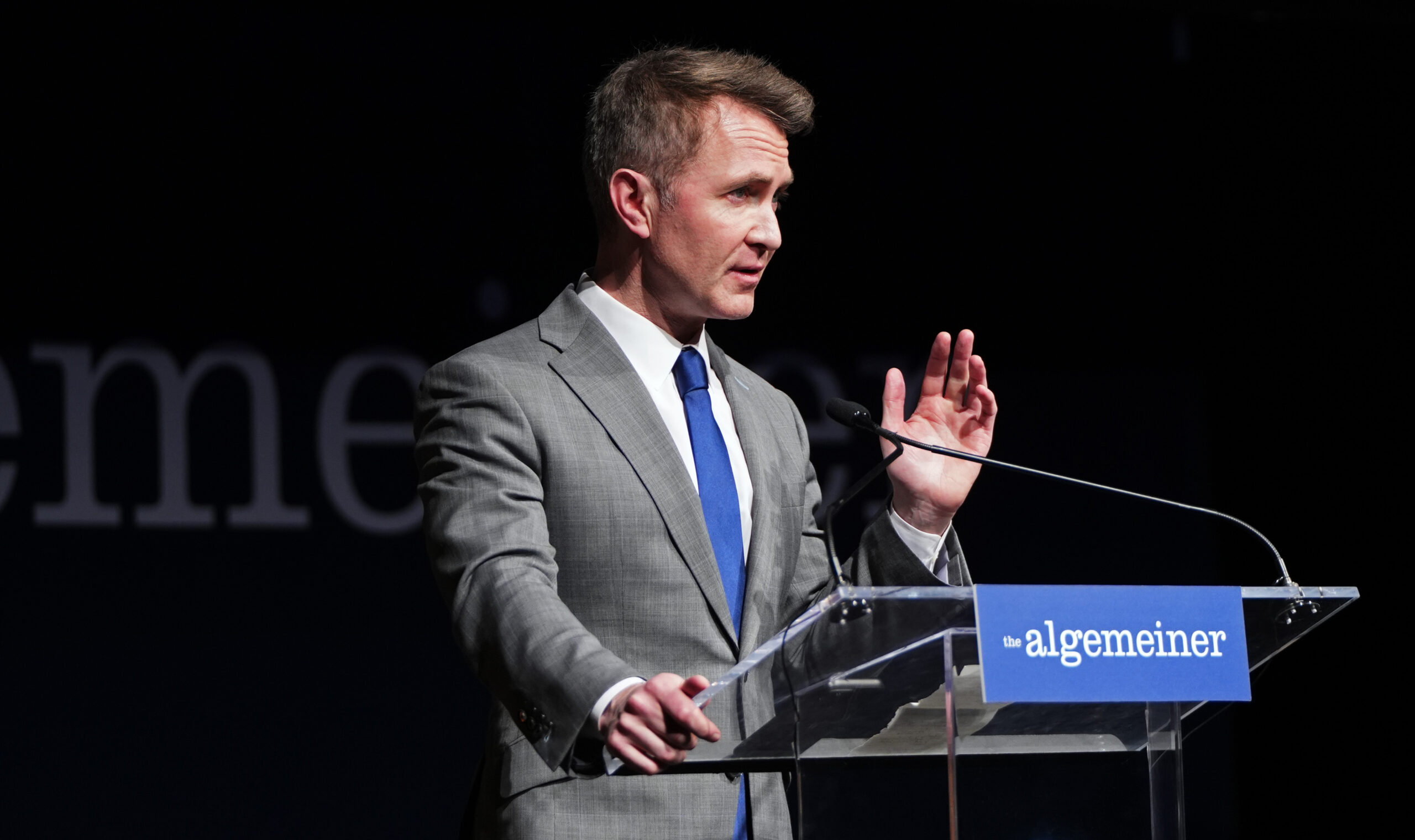Douglas Murray’s Discredited Credentialism
Joe Rogan is providing a forum for elites to be challenged, and should push even harder.

It is a difficult time for those of us who wanted a moment where institutionalism and credentialism were torn down in favor of genuine scholarship, erudition, and expertise that exists outside the confines of an ideological academia. The proximate cause: a recent appearance of British writer Douglas Murray on Joe Rogan’s podcast.
Murray is a raging neoconservative who has been proselytizing since the George W. Bush administration. In our times the word “neocon” is often used unduly to characterize those who prefer a more muscular foreign policy, but that is in itself ahistorical. Neoconservatism has a specific ethos: not just prioritizing high military spending, but using it for spreading a particular set of values in an attempt to institutionalize a more egalitarian society through means of military force. It is an inverse Trotskyism. Neoconservatives don’t believe in conserving anything, although they do pay lip-service to social conservative positions (only to discard them at will when necessary). Their primary instinct is revolutionary: to spread values by force. The term has been used, fairly and unfairly, on many people, but if there’s one man who can justifiably be called one, it is Murray, the author of NeoConservatism: Why We Need It (2005).
Murray came to debate Rogan and a chap named “Comic Dave Smith” and instantly started questioning why Rogan doesn’t invite experts. Murray’s contention was that, first, there has indeed been a devaluation of expertise, and the expert class hasn’t done any favors for itself in recent years; second, that doesn’t mean all expertise is bad; and, third, the only people who should talk about something are those with direct tangible experience. It obviously doesn’t take a doctorate to understand the vacuity of Murray’s takes, which started with a fallacious appeal to authority and continued from there. (In any normal well-judged debate, he would forfeit his position for that alone.) Murray’s agreement that expertise has been devalued clearly doesn’t touch the foreign policy experts, mostly neoconservatives and neoliberals, who ran Anglo-American political establishments into the ground for over two decades.
The most deranged contention was that one needs to have visited an area (Gaza in this case) to comment on the generic idea that America shouldn’t be involved in Middle Eastern interethnic wars. In international relations, it is similar to Isaiah Berlin’s fox and hedgehog metaphor. While the fox is a generalist and theorist, with a detached wise view of the whole, the hedgehog burrows deep, and seeks a deeper knowledge of a particular fact. The two are not opposed, but are complementary to each other. The fox relies on primary sources, dug up by the hedgehog, to establish a general theory or grand strategy without which there will be policy paralysis and endless unit-level variables.
But in reality, a deeper area study actually might bias the hedgehog towards threat inflation, He or she might consider that region of his or her study to be of utmost importance, a contention that upon detached reflection wouldn’t be sustained. Murray, if he was a genuine intellectual, instead of a Received Pronunciation–burbling poser, would have realized that his state-sponsored tour of the region actually biases him more towards a certain set of predisposed conclusions. Dave Smith, or Joe Rogan on the other hand, don’t need to visit Gaza or Israel, to comment that that region is not strategically important to the U.S. and that Americans shouldn’t send tax dollars to defend either side.
Or perhaps Murray doesn’t care. Given that he is a neoconservative, he is predisposed to take a side in this conflict anyway, and his appeal to area expertise is similar to his appeal to authority, a quick attempt to discredit the other side of a debate, instead of responding. After all, Murray will be equally quick to dismiss those who are present in Gaza and take a position opposed to him. For Murray, just as for his more erudite and intellectually coherent forebear Christopher Hitchens, spreading secular liberal egalitarian values across the galaxy by force is the main aim. The nominal “America First” coat of lacquer on the decaying neoconservative furniture of the Bush era is just that—a change in style, not substance.
As I have written before, historical revisionism is important, provided it is actually intelligently done. For what it’s worth, there’s one core sentence by Murray which was powerful and correct: “If you throw a lot of shit out there, there’s some point at which ‘I’m just raising questions’ is not a valid thing, you’re not raising questions, you’re not asking questions, you’re telling people something.” He is right, even if the expression is crude; the ironic “just asking questions” line of interrogation is a motte-and-bailey cop-out for those who are incapable of intellectual rigor and too cowardly to take a provocative position without sounding like a complete crank.
The new right is not lacking intellectual heft. In fact one of the core contention of the last decade was that the total ideological dominance in academia with left-wing gatekeeping kept genuine right wing intellect ostracized within the academy. This magazine is not in the business of endorsing individuals. But off the top of my head, there are many among our stable of illustrious writers and editors—from Pat Buchanan, to Dan McCarthy, to Michael Brendan Dougherty, to Curt Mills—who would be willing and far more able to debate neoconservatism with Murray. Sean McMeekin, an occasional contributor to these pages, is one of the finest revisionist historians of his age. Your humble correspondent has made a career writing about burden sharing with Europe and within NATO.
It will indeed be a tragedy if this moment tarnishes the hard-earned gains of the last decade of battles in the public square. On one hand, the suffocating credentialism and conformism of academia and elite society is unbearable and the revolutionary moment that we are living in brings opportunities, as in post-Reformation Europe. On the other hand, as with any revolutionary moment, there is an inherent disdain for any authority or expertise, and barring intelligent stewardship, the risk is that the movement is dominated by intellectual shock-jocks—shallow but provocative. In the greater scheme of things, this correspondent worries, perhaps unfairly but not without cause, that the right will be permanently damaged by association for at least a generation if we cannot find a way to platform those who can reliably and rigorously defend against the return of an even more muscular form of neoconservatism.
The post Douglas Murray’s Discredited Credentialism appeared first on The American Conservative.

